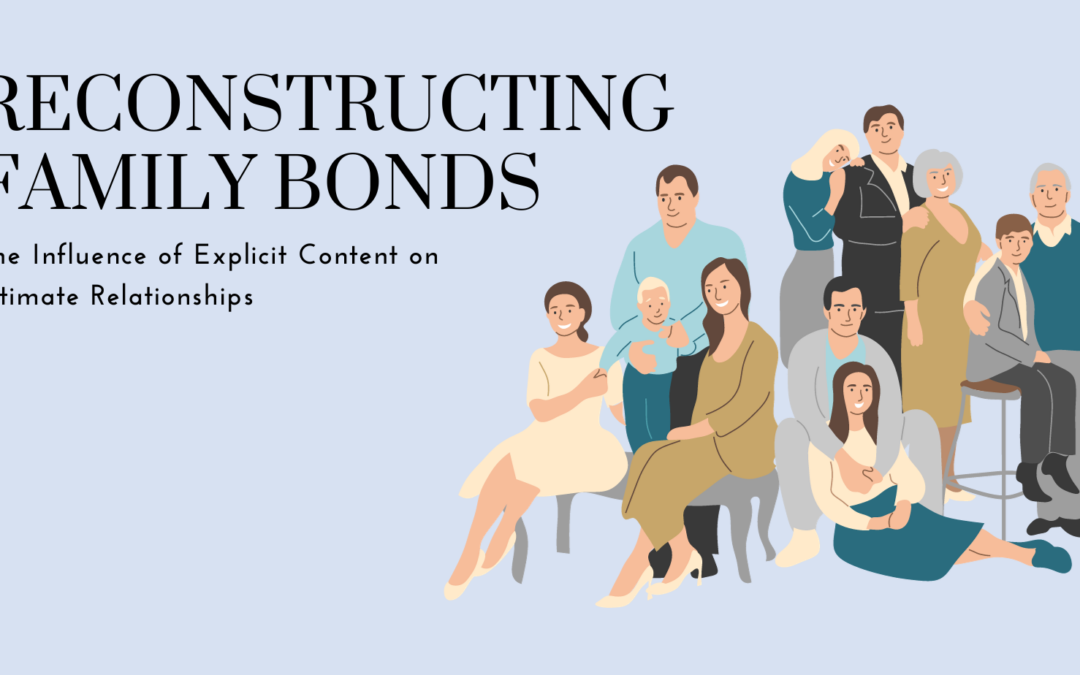In an era marked by technological advancements, where information flows freely and access to adult materials is just a few clicks away, it becomes imperative to explore the pervasive issue of explicit content and its effects on personal relationships. At the intersection of human desires, technology, and intimacy, lies a nuanced web of emotions and challenges that numerous couples encounter. Considering the struggles our teens face, wilderness therapy program for teens may be a great option for them. In this in-depth discourse, we delve profoundly into the intricate dynamics of how explicit content can impact relationships and provide insights into rebuilding and fortifying those emotional connections. As well benefits that come from wilderness therapy programs for teens.
The Widespread Reach of Explicit Content
The Magnetism of Explicit Materials
Let’s acknowledge the undeniable truth – explicit content has evolved into a commonly consumed form of media for a substantial segment of society. The internet’s unprecedented accessibility to graphic content makes it increasingly available to individuals of all ages. The allure of such content stems from its ability to cater to an extensive spectrum of desires, rendering it an enticing temptation for both genders.
Unearthing the Subsurface Effects on Relationships
While the consumption of explicit content is frequently considered a personal affair, it can have profound consequences on one’s romantic relationships. Many individuals find themselves ensnared in a struggle between their yearning for sexual novelty and their commitment to a partner. This inner turmoil can lead to a breakdown in communication and emotional intimacy within a relationship.

The Impacts of Explicit Content on Relationships
1. Pervasive Unrealistic Expectations
One of the most significant concerns arising from explicit content consumption is the cultivation of unrealistic expectations. Such content often portrays exaggerated and scripted sexual encounters that significantly deviate from genuine intimate experiences. Consequently, individuals may develop impractical beliefs regarding their partner’s appearance or performance, resulting in discontent and disillusionment.
2. Erosion of Intimacy
Excessive consumption of explicit content can result in diminished sexual intimacy within a relationship. When one partner turns to explicit content as their primary source of sexual gratification, it can leave the other feeling unfulfilled and undesirable. This can result in emotional detachment and a decline in physical intimacy.
3. Impediments to Communication
Explicit content can also impede open and candid communication between partners. Many individuals harbor feelings of shame or guilt concerning their consumption of such material, prompting them to keep it concealed from their significant other. This lack of transparency can undermine trust and create a barrier to addressing the issue.
4. Escalation and Addiction
For some individuals, explicit content can escalate into an addiction. As is the case with any form of addiction, it can initiate a cycle of escalation, where individuals seek increasingly graphic content to attain the same level of arousal. This can strain relationships, as the addicted partner may prioritize explicit content over their partner’s emotional well-being and needs.

Rebuilding and Reinforcing Relationships
1. Cultivating Transparent Dialogue
The initial step in addressing the repercussions of explicit content on a relationship involves fostering transparent and open communication. Both partners should feel at ease discussing their sentiments, apprehensions, and boundaries concerning explicit content. Creating an environment conducive to dialogue can help alleviate the feelings of shame and guilt often linked to this subject.
2. Professional Guidance
If the impact of explicit content on your relationship feels insurmountable, seeking the assistance of a therapist or counselor specializing in sexual and relationship issues may prove beneficial. Professional guidance can furnish strategies for managing addiction, rebuilding trust, and ameliorating intimacy.
3. Defining Limitations
Laying down unambiguous boundaries pertaining to explicit content within your relationship is pivotal. Both partners should reach a consensus on what is deemed acceptable and what is not. This can mitigate misunderstandings and future conflicts.
4. Reigniting Intimacy
Investing time and effort in rekindling emotional and physical intimacy within your relationship is essential. Engage in activities that foster emotional closeness, such as shared hobbies, meaningful conversations, and romantic outings. Reigniting intimacy can counteract the detrimental effects of explicit content consumption.
Wilderness Therapy Programs For Teens
Wilderness therapy programs for teens are experiential-based approaches that combine nature, small group living, and therapeutic interventions to provide mental health treatment for individuals aged 13-17. These programs aim to help troubled youth by immersing them in a wilderness setting where they learn coping skills, develop self-awareness, and gain valuable life skills. Participants engage in activities such as hiking, camping, and team building, while receiving multifaceted mental health support. Wilderness therapy programs for teens offer a holistic approach to address maladaptive behaviors and challenges like addiction and substance abuse. They provide a unique and immersive environment for growth, healing, and personal development.

In Summation
The ramifications of explicit content on relationships represent a multifaceted issue that warrants acknowledgment in today’s digital milieu. It is essential for couples to recognize the potential challenges it poses and take proactive measures to address them. By nurturing transparent communication, seeking professional guidance when necessary, defining clear boundaries, and rekindling intimacy, couples can embark on the path to reconstructing their relationships and rediscovering equilibrium in their lives.

